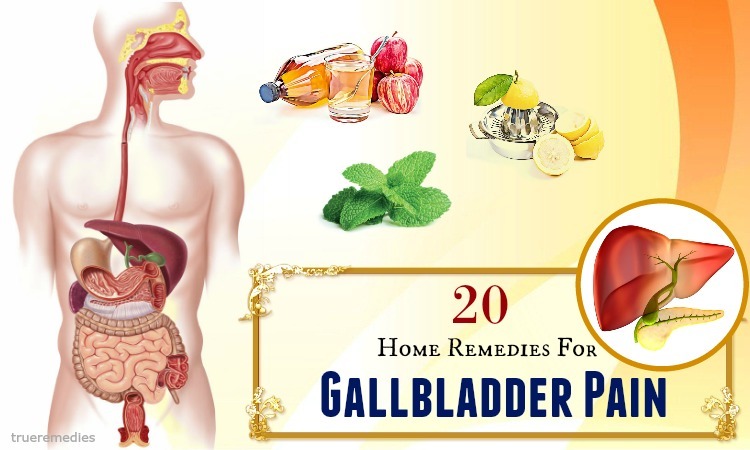Updated: 07/02/2019
Contents
If someone has never been belching, then that person is definitely “mutant.” Belching is one of the common conditions of all ages and usually occurs after eating. Many people are belching many times, but they still do not know the reason. Although it is not dangerous, the constant burning of belching makes sufferers uncomfortable. Before learning home remedies for belching, we find out what belching is.
- 26 Home Remedies For Gas Pain And Bloating In Children & Adults
- 22 Ways How To Get Rid Of Sulfur Burps Instantly & Naturally
- 30 Natural Home Remedies For GERD Pain In Children & Adults
What Is Belching?
Belching (also called burping and eructation) is a normal physiological phenomenon that occurs after eating [1]. Even in some cultures, belching, after meals, is considered a sign that you are very satisfied with the meal. We can be belching about 30 times a day or 3-4 times an hour after eating. This number is far more than what we know. However, in many people, the phenomenon of belching occurs continuously for a long time and cannot be controlled. At this time, belching is really a matter for us to take care of.
Whenever we eat or even swallow, we swallow 8-32 ml of air down to the stomach. In addition, gas is produced during the digestion process. So right after eating for a while, the stomach will be like a bulging bag filled with gas and food. To prevent stomach upset, air must be pushed out. If gas escapes the body through the mouth, it is called belching. In short, belching is the reaction of the body to reduce gas in the stomach.
Frequent and continuous belching are common symptoms in gastroesophageal reflux disease and gastritis. About 70% of gastroesophageal reflux patients and 80% of people with gastric inflammation suffer from belching symptoms. In gastroesophageal reflux disease, due to frequent acid reflux in the esophagus and pharynx, saliva is secreted to neutralize a part of the acid. Reflux patients usually swallow more than the others, so they also swallow more gas into the stomach, which is one of the causes of severe belching. In gastritis patients, their gastrointestinal tract is affected, leading to gastric overload due to slow digestion. The food is stuck in the stomach, forcing the stomach to release itself by reducing the pressure through the belching.
Gastrointestinal patients who have bloating symptoms are more comfortable after belching, and they tend to try to belch more when the feeling of fullness causes them to become uncomfortable. Initially, this belching is intentional, and they can control this action. However, when this happens too often, it becomes a habit; and patients cannot control this. Patients are still belching, even if the abdominal discomfort is gone.
TrueRemedies Partner Solutions

Need a Help from the Leading Expert Online, Available 24/7?
They’re all here and ready to answer your questions online or by phone. Keep asking questions until you get the answer you need.
What Are Common Causes Of Belching?
Here are common causes of this problem.
- Gastroesophageal Reflux
Gastroesophageal reflux disease is a disease that occurs quite frequently in people with a poor stomach, poor digestion, or a history of pathological without an endpoint treatment. If not treated timely, gastroesophageal reflux will cause serious complications, such as inflammation of the respiratory system, esophageal strictures, esophageal barrett, and esophageal cancer.
- Gastric Ulcers
Most people who have gastric ulcers have belching symptoms in the early stages of the disease. This is a symptom of stomach acidosis and gastric ulcer disease in the early stages of development of the diseases. Belching accompanied by the smell of alcohol is often a symptom of gastric ulcer.
- Esophagitis
The inflammatory state of the esophagus, which limits the ability to perform peristaltic waves to push food down the stomach, causes many cases of long-standing food in the esophagus that produce belching. Belching more often with esophagitis is a common symptom, but if this condition occurs too many times and there is a dramatic increase in the symptoms, patients should be aware that the disease is likely to be in the process of complications.
- Irritable Bowel Syndrome
Irritable bowel syndrome (IBS), also known as dyslipidemias, is especially common in those with intestinal disorders. People with irritable bowel syndrome often have abdominal discomfort, gastrointestinal disturbances, dyspepsia, and belching.
- Celiac Disease
This is a type of gastrointestinal disease that is primarily responsible for stomach upset because of gluten sensitivity – a protein found in wheat, rye, and barley. This disease usually occurs in many people with signs such as diarrhea, vitamin deficiency, and malnutrition.
- Ovarian Cancer
Most of the symptoms of ovarian cancer are very blurred, and many patients often only detect this disease when it is in the late stage. Therefore, when you have abdominal distention and prolonged belching, you should be examined immediately to prevent dangerous complications from the disease.
- Hormonal Changes During Pregnancy
In addition to the above conditions, this may be a sign of menopause in women or in the early stages of pregnancy. This is due to hormonal changes that slow down the bowel movements, causing food to move slowly in the digestive tract, leading to constipation and belching.
- Other Causes
Eating more starchy foods and foods that are high in fat, but the body does not have enough fermentation systems to metabolize these foods, leaving food stuck and fermented in the stomach is also a cause of the belching phenomenon.
In addition, stress and anxiety may have a serious impact on the stomach. Using a lot of medicine will also have a side effect on the digestive system.
What Are Common Symptoms Of Belching?
Normally, during the eating process, airflows are released through the anus. When this process is disrupted, the esophageal spasm will occur, and consequently, the gas from the esophagus will go up to the oral cavity. This will make people to be belching accompanied by feelings of nausea, discomfort, and vomiting. In addition to this phenomenon, patients also face some other conditions such as abdominal pain, diarrhea, flatulence, and constipation.
Who Is At High Risk Of This Problem?
People who are susceptible to belching include:
- People with gastric ulcer, esophagus, scleroderma
- Pregnant
- Obese person
- Older people (aged 50 and more)
- Officer
- Patients taking special medications for osteoarthritis
When To See A Doctor?
Belching after eating is normal physiology of the stomach, but if you have frequent belching, even when you are hungry or not eating anything, you should think about the possibility of having gastroesophageal reflux disease (GERD). In addition, if you also have symptoms of nausea and chest pain, you should see a doctor as soon as possible.
Now, let’s find out the best natural home remedies to treat belching and bloating.
Top 10 Natural Home Remedies For Belching And Bloating
While we are listing the scientific evidence, the recipes we've focused on are traditional home remedies so proceed with caution depending on your belching status. Always consult your doctor and take a test regularly to know if a remedy is working for you.
1. Ginger
Ginger is a popular folk drug that is effective in treating gastrointestinal diseases. Modern studies have also shown that ginger is effective in treating stomach pain and peptic ulcer disease without the use of drugs, especially without causing the side effects [2] [3]. Ginger has antibacterial, anti-inflammatory and analgesic properties [4]; so, it is often used to overcome gastrointestinal and respiratory diseases such as dyspepsia, indigestion, nausea, and car sickness [5].
Modern medical studies have shown that ginger contains substances, such as terpenes and oleoresins that have potent antiseptic, anti-inflammatory, and analgesic properties and are considered natural antibiotics without any side effects [6]. In addition, scientists have discovered that the bitterness of fresh ginger and compounds such as 6 – Zingiberol, Methadone (Amidon), and Ginger oil in ginger have the effect of inhibiting the composition of Prostaglandins. Therefore, ginger works against belching and digestive disorders effectively [7].
Chewing a piece of fresh ginger before eating may prevent belching. If you cannot stand the taste of raw ginger, you can make a cup of hot ginger tea to drink. Add honey and lemon juice to the ginger tea to make it easier to drink.
This helps relieve stress – one of the causes of belching. However, ginger juice only works when you drink in the morning or afternoon. Eating raw ginger or drinking ginger tea after dinner will make it harder for you to sleep.
2. Ripe Papaya
Among effective remedies for getting rid of belching, using ripe papaya is one of the most effective. Ripe papaya contains about 90% water, 13% sugar, carotenoids, organic acids, vitamins A, B, C, 0.9% fat, cellulose (0.5%), calcium, phosphorus, magnesium, iron, thiamin, riboflavin, and no starch. carotene (pro-vitamin A) 500 to 1,250 IU. In addition, there are also vitamins B1, B2, yeast acid, minerals such as potassium (179 mg), calcium, magnesium, iron, and zinc in papaya. These nutrients are very good nutrients for digestion [10]
In addition to these nutrients, green papaya contains 4% of latex. Latex is a milky white color, and it is a mixture of many proteases, which are mainly papain. Papain works like papain of the stomach. It may also inhibit the growth of bacteria. Staphylococci and typhoid bacteria are very sensitive to the effects of papain. For the above reasons, you can use papaya fruit to treat belching. All you need to do is add the papaya into your daily diet. Besides, you can also drink a glass of papaya juice to improve the situation.
3. Yogurt
This is another must-try home treatment in this list of home remedies for belching. Yogurt is known as a delicious, fresh food for all ages. In addition, it has many uses in preventing and treating some diseases, especially gut diseases [12] [13]. Yogurt is a dairy product produced by fermented milk. Yogurt is made by lactic acid bacteria – a very beneficial bacteria for human health [14]. Yogurt contains many nutrients such as calcium, zinc, vitamins, and lactic acid
Yogurt is a product of milk; so, it has high and balanced nutritional value. 100g yogurt contains about 100 Kcal, 3.1-5.3 g protein, 2.3-2.6 g fat, 14-15g powder. 100 g of yogurt can provide approximately 100 Kcal. The average energy structure of yogurt is quite balanced, with the energy ratio of the three substances P: L: G is about 17:23:60. In particular, some kinds of yogurt contain DHA (a non-saturated fat) and probi (cfu), all of which help prevent some intestinal diseases and add acid to gastric. This helps digest food more easily, preventing belching. Therefore, let’s add 1-2 cups of yogurt a day to prevent and improve your belching problem [16].
4. Bananas
This remedy is one of the little-known home remedies for belching. Banana is a fruit that is said to be extremely wonderful in the treatment of diseases, especially diseases of the digestive system. High levels of potassium in bananas may help the body counteract the amount of sodium and the imbalance of the stomach environment during digestion [17]. Maintaining a good level of sodium-potassium balance is essential to maintaining water balance, avoiding excess water in the stomach leading to bloating and belching.
Bananas help restore normal bowel function, especially diarrhea that occurs when you drink too much alcohol. Bananas are also high in fiber. A medium-sized banana contains about 3 g of fiber, which makes bananas a good fiber source. As you know, fiber supports the digestive process and especially reduces indigestion [18]. When you experience belching, you can eat a banana to improve this problem. However, you should only eat one banana a day, and avoid eating bananas when you are hungry to avoid bad reactions for your body.
5. Pineapple
Another important fruit in the treatment of bloating and belching is pineapple [19]. Pineapple contains bromelain. This is an enzyme that acts to promote digestion [20] [21], reduce stagnant air, and move back up the esophagus, thereby reducing the feeling of fullness. Bromelain also may promote protein absorption in the body; so, pineapple helps you easily digest foods such as meat and fish.
Because of these effects, add pineapple to your daily diet, or regularly drink pineapple juice to improve your belching. However, people with kidney disease should not eat pineapple because pineapple is rich in bromelain that will dissolve hematein and casein in the kidney, impairing the function of the kidneys.
6. Honey
This sounds strange when it comes to home remedies for belching, but it can be effective. The mineral content of honey is 0.04% – 0.06%, including iron, copper, potassium, sodium, tin, manganese, magnesium, calcium, etc. Honey is known to be a very good source of healing effect for many diseases, especially digestive diseases, including belching [22] [23] [24]. However, directly using honey is not an effective treatment for indigestion stomach as many people think. You need to combine honey with other ingredients to get the best effect.
You can treat bloating, belching, and indigestion by drinking a cup of honey tea. Mix one tablespoon of honey with warm water, add a tablespoon of lime juice and a few slices of ginger to it. This tea not only helps to treat dyspepsia but also stimulates the digestive system to work well.
7. Celery
This is one of the little-known home remedies for belching. Celery is a raw vegetable used to make many delicious dishes. In addition, celery also provides essential nutrients for the body; so, it is able to prevent some diseases, especially digestive diseases [25]. According to a study in Pharmaceutical Biology, laboratory rats eating celery extract have fewer ulcers and more resilient stomach linings [26]. It was determined in 100g celery leaves containing up to 6.3% protein, 0.6% lipid, and 2.1% trace elements (calcium, phosphorus, iron). In addition to these minerals, vitamins, and nutrients, celery contains and essential oils that have a strong and characteristic aroma. Therefore, celery helps to prevent flatulence and belching.
Celery is used to aid digestion, control intestinal gas, and detoxify the body. When you are full, eating celery helps reduce the amount of water stored in your body, and thus, reducing the belching problem. Besides, celery has antioxidant and anti-inflammatory properties [27] [28] that may help prevent stomach ulcers.
Studies have found that celery increases the production of mucus in the gastric mucosa, helping to prevent the formation of stomach ulcers. Celery also contains 3-n-butylphthalide (3nB) – a compound used to lower blood pressure. So, it is extremely good for people with hypertension.
This remedy is very simple. All you need to do is to enjoy a glass of celery juice daily to treat or prevent belching.
8. Carrots
Using carrots is considered one of the best natural home remedies for belching. Carrots have a lot of pectins. Pectin [29] is especially good for people with gastrointestinal disorders and infants with diarrhea [30]. Pectin absorbs the toxins in the intestine so that the toxins are not absorbed into the body. It also means that pectin supports the liver in eliminating these toxins.
Carrots support the digestive system by enhancing the production of saliva while providing the minerals, vitamins, and enzymes needed by the body. Regularly eating carrots helps to prevent stomach ulcers and gastrointestinal disturbances. Now you have a reason to add carrots to your daily diet, right?
9. Watermelon
The next one in this list of home remedies for belching is using watermelon. Watermelon is a fruit rich in antioxidants, vitamin C, vitamin A, and amino acids. Watermelon also contains large amounts of water; so, it helps the digestive system to function better [31] [32], and helps neutralize the acid in the stomach to reduce heartburn. Watermelon also contains digestive enzymes; so, it is beneficial to the digestive system and the bowel of children. Many studies have shown that watermelon contains agents that fight against intestinal tract cancer. Therefore, regularly eating watermelon or drinking watermelon is necessary for you to do.
10. Cardamom
This is a spice helping treat excessive gas production and belching [34] [35]. Also, it is known as the dung of devil or stinking gum. Asafetida is native to Iran.
To make use of this plant as one of the home remedies for belching, you can add a pinch of it into a glass of warm water. This will treat excessive production of gas in your body. To add more effects to this treatment, add some ginger powder and salt to the glass.
Alternatively, you can also use asafetida as a spice for gaseous foods such as Brussels sprouts, broccoli, and cabbage.
In case you have abdominal cramps, then take the steps here:
- Soak a clean cloth in the bowl filled with warm water
- Then, add a teaspoon of asafetida to it
- Use the cloth as a poultice
Note: Because asafetida features strong smelling spice, store it in a dry airtight container.
Additional Tips:
In addition to the above remedies, the restriction of eating the following foods is also an effective way to limit belching.
- Do not eat starchy or fermented foods such as bread, dumplings, noodles, sweets, and dairy products such as butter, cheese, etc. They will cause a lot of gas in your digestive tract, which can lead to uncontrolled belching.
- Avoid drinking fizzy beverages, alcoholic beverages, and soft drinks.
- Avoid eating malt foods, including salad dressings, fish sauce, etc.
- Get rid of chewing gum habit because it will cause more belly buildup, which can aggravate bloating.
- Artichoke contains natural sugar oligosaccharide which the body can not completely break down. These large molecules are not digested like other sugars because our bodies do not produce enzymes to decompose them. Therefore, limit the consumption of this food.
- Avoid stimulants (alcohol, beer, cigarettes, etc.) because they will penetrate and gradually destroy the structure of the throat and stomach. Frequent use of stimulants makes you inevitably belching.
Here are the home remedies for belching that we would like to mention in this article. They are very simple and effective. They will help you get rid of this discomfort so that you feel more comfortable and you can focus on the job. If you have any contributing ideas about our article, do not hesitate to drop your words below this post. We will answer as soon as we could.












